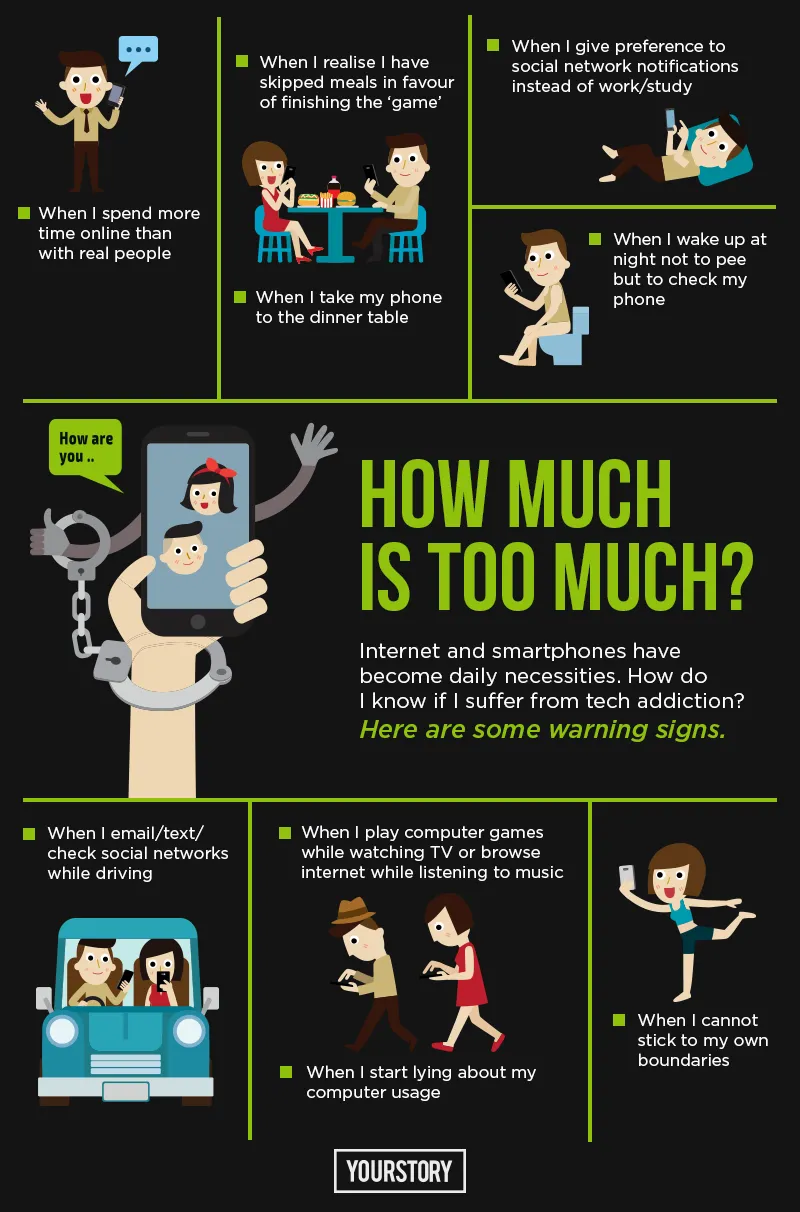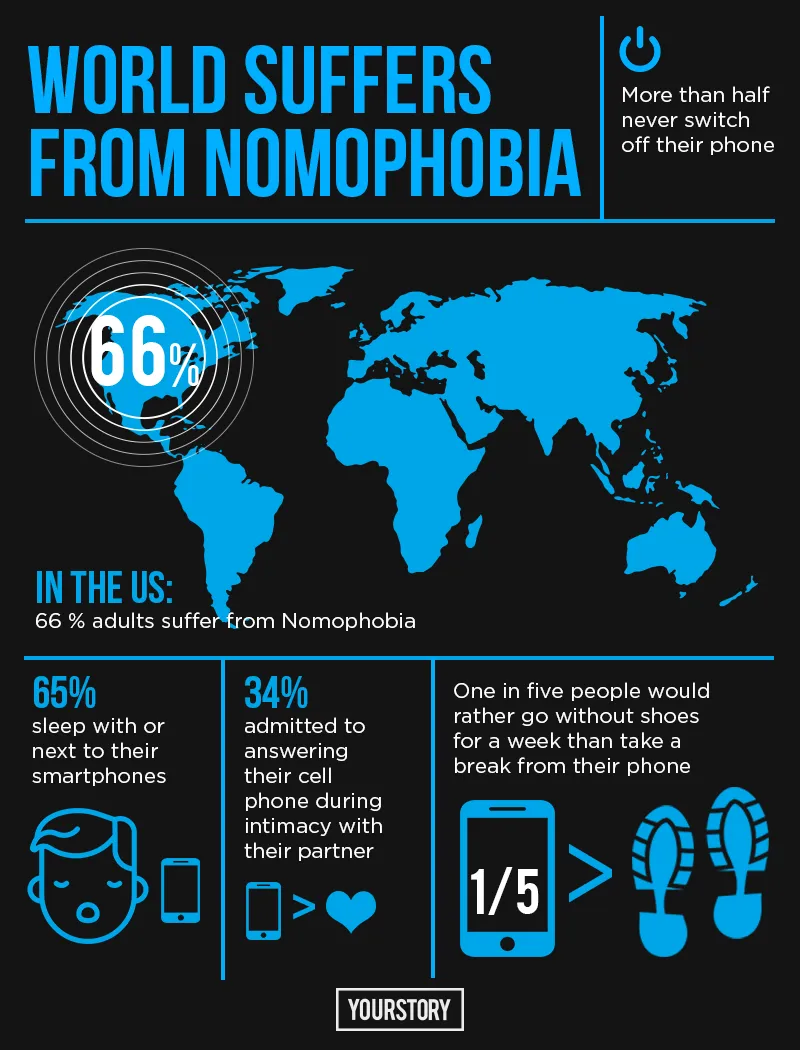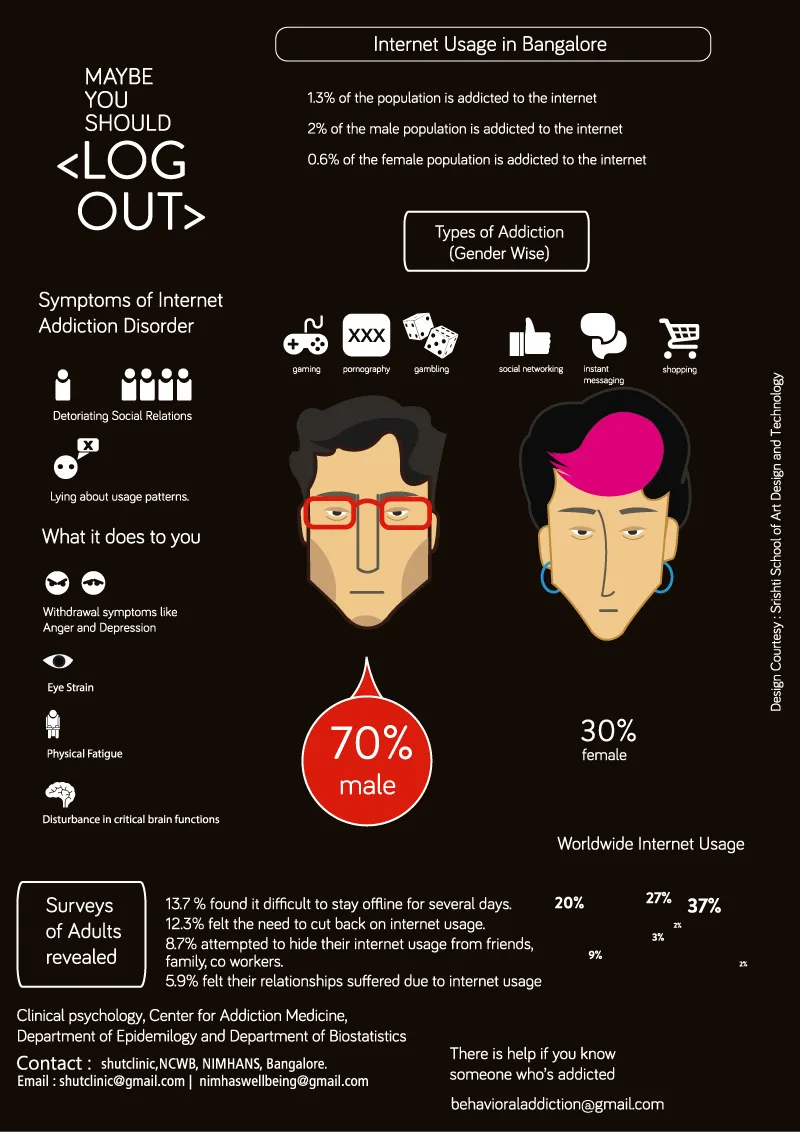Tech addiction - will we end up marrying our smartphones?
It was no laughing matter when 34-year-old Aaron Chervenak from Los Angeles married his smartphone in Nevada last month. Contrary to many assumptions that this was an act by one of them “crazy Americans” who have nothing better to do with their time and money, Aaron showed that the joke was on us instead.
“If we're gonna be honest with ourselves, we connect with our phones on so many emotional levels. We look to it for solace, to calm us down, to put us to sleep, to ease our minds, and to me, that's also what a relationship is about,” he said in a video to make a point about our growing attachment to our smartphones.

Let’s face it we all live our daily lives with the mortal fear of losing our mobiles, running out of battery or having no network coverage. I do. I cannot seem to bear to be parted with my phone even for a second. I cannot remember the last time I switched it off. And yes, I sleep with my phone.
Our phones have become our extended appendages that do all the things that Aaron mentioned. The fact that they can also make calls is incidental.
We turn to our smartphones instead of making eye contact with people at airports or on trains. We text during office meetings, check our Facebook newsfeed while having dinner with family, jump at a WhatsApp notification in the middle of a dental procedure, and, as someone pointed out even take it with us to the bath.
Nomophobia
Interestingly, Aaron’s act of wedding his smartphone also makes him a perfect case study to argue that we are collectively suffering from what is termed as 'Nomophobia', the fear of being without our phones, and it is robbing us of our mental peace.
According to a KPCB 2013 internet trends study, an average user checks their mobile phones 150 times a day. An Israeli study conducted by the University of Haifa suggests that 94 percent of college students reported feeling troubled when not carrying their phones with them, while 80 percent said they felt jealous when someone else held their phones, and 70 percent said they expected to have feelings of depression, panic, and helplessness if their phones were lost or stolen.

Closer home, the National Institute of Mental Health and Neuroscience (Nimhans) found that 4.1 percent of Bangaloreans (five percent males and three percent females) are addicted to their phones. (Note: these are updated figures from the ones in the chart below.)
SHUTClinic, run by the Nimhans Centre for Wellbeing (NCWB) under Dr Manoj Sharma regularly sees people who, the doctor says, suffer from “tech addiction.” And among them, the majority is under the age group of 18 to 24. SHUTClinic (Service for Healthy Use of Technology) is India’s first tech de-addiction clinic based out of Bengaluru.
With the third largest smartphone market in the world, India is set to reach 314 million mobile internet users by 2017. In the context of what we are discussing, it does not augur well for the mental well-being of such a large population.
“Many of us feel isolated today. We either do not discuss our issues with friends and family or they are busy elsewhere. So we turn to technology -- our phones, iPads, and the internet. It is a way to cope with our loneliness,” Manoj Sharma, Additional Professor at Nimhans, says.
He adds that there is an on-going debate even in the American Psychiatric Association whether to call this dependence an 'addiction' or 'coping' mechanism. “On the one side, we are seeing an excessive usage of video games and pornography, while on the other side it also displays certain coping mechanisms. For example, for a child who does not get good results in school, the big scores she achieves in a video game provides her with an artificial environment that boosts her self-esteem. It makes her feel that she has friends online who are impressed,” he says.
Likening excessive internet usage to binge eating or comfort eating, Dr Manoj Sharma says 'comfort browsing' reflects our state of mind. Giving an example of a teenager who was obsessed with taking selfies, the doctor says that the obsession was a manifestation of something larger. “The child suffered from body dysmorphic disorder. She felt that she was not attractive and would spend all her time perfecting her body image with selfies,” he says.
Technology is just a means. It is what we make of it. The doctor adds that using technology as the sole method of coping is dangerous. “Nowadays even suicidal threats happen online rather than reaching out to loved ones in real life,” Dr Manoj Sharma adds.
When an excessive use of our smartphones, iPads, and laptops begins to impact us psychologically, socially, and emotionally, then it is time we sought professional help.
Addicted to tech
The SHUTClinic sees a lot of activity on weekends. I met a couple who had brought their nine-year-old daughter to be counseled. It was difficult to imagine that this shy girl could have anything to do with an addiction of any sorts. The mother, a homemaker, told me that they were concerned the child was spending too much time on her iPad playing games. As a result, her grades in school were falling.
She has her own iPad, I asked. “Yes, when we bought a new TV, the iPad came along with it, and it was agreed that it would be hers,” her mother tells me.
That should not come as a surprise, considering iPads are increasingly being used by parents to babysit and pacify children as young as one-year-olds. “I see it all the time,” says Dr Sanjay Phutane, a homoeopathy doctor, who consults patients on matters of general well-being besides alleviating their cold and throat problems. “When parents come to see me, they will hand over their iPads or smartphones to their children so that they are occupied,” he adds.

Parents have a blind spot. We need rear-view mirrors to bring to light something we often fail to see. Ninety-nine percent of the time -- unknowingly (to be kind to us) -- we are the cause of our children’s problems.
According to Dr Sharma, the family I met was being cautious and wanted to understand how much of tech use was too much. “There’s no issue with the child. She hardly has time in the day to spend on her iPad to fall into the category of addiction,” he says, adding, “But the parents were anxious about their own usage.”
The mother confessed that since she had been reunited with her school mates via a WhatsApp group, she would constantly allow herself to be interrupted to check the notifications and think of clever comebacks to her friends. “So if I was explaining my daughter a maths sum and I got a message on my Whatsapp, I would get involved with it,” she says.
She added that after her husband returned from work, he too would often get busy on his laptop or phone. Things came to such a pass that the daughter started resenting this inattention. “She says that WhatsApp is now my daughter,” the distraught woman tells me. Adds Dr Sharma,
“The first signs appear when others start to object to one’s time spent online."
He sees around three to four families a week and says the youngsters who come to him are usually smart and have noticed a decline in their grades because of tech distraction.
Besides online games, accessing pornography online is another major addiction among the people who visit the clinic. “A 19-year-old was so obsessed with online pornography that he started asking his parents for money late in the night so that he could visit a brothel. If they refused he would become violent or steal money,” the doctor shares.
A woman in her mid-20s came for consultation concerning infidelity due to her husband’s online pornography indulgence. “Such behaviour leads to avoidance of physical intimacy as well as a presence of psychiatric distress in the other partner. Most spouses feel betrayed, angry, and hurt by online infidelity as they would if real life adultery had taken place,” says the doctor.
In another case, a 15-year-old, academically-bright and creative teenager, had started spending 10–12 hours a day playing video games. He said the excessive use of games gave him a feeling of well-being and helped him manage his boredom, academic decline, and interpersonal problems.
“He told me, 'I just like the virtual world. It does not matter to me what my parents say, but they should not take my virtual world away from me',” Dr Sharma tells me.
Together in it, alone
Put in the context of sociologist Sherry Turkle’s theory, whose research focusses on psychoanalysis and human-technology interaction, he had “found a way of being a loner without being alone.”
In today’s fast-paced world, there’s a feeling that no one’s listening. And according to Sherry Turkle, “Human relations are rich, messy, and demanding. We clean them up with technology.”
Sherry is a professor of Social Studies of Science and Technology at the Massachusetts Institute of Technology, and her latest book, Alone Together: Why We Expect More from Technology and Less from Each Other, believes we have “trouble not only how we relate to each other but also how we relate to ourselves” because of our reliance on our mobile phones.
That’s a scary future scenario staring at us. “Right now, awareness is the first milestone. Technology is a part and parcel of our lives. I cannot tell people to give it up. But we can make certain lifestyle adjustments so that we remain sane,” says Dr Sharma.

On a Reddit message board, I found this, which is sure to shine a light through the dark tunnel some find themselves in. On realising that smartphone addiction was affecting his life, a Redditor writes that he gave up his smartphone in favour of an old Nokia that was good for just calls and SMSes.
“The first week was awful. All my friends use WhatsApp/Telegram so basically, I was cut out. I installed these apps on my PC (using remix OS) so the only time I could join the group chat was at home. After a week of SMS and frustration, I noticed that I was losing the anxiety of not having a phone with me. The second week, everything was ok. I started carrying a notebook in my pocket with trains’ timetable and other stuff that I needed. I could enjoy the view on the train if I was not reading a book and the best part was that when I didn't want to read (often) I could just think. Think about life and other important things that you may forget when you're busy, this thing is really amazing and it helped me a lot. I also started calling a lot instead of sending SMS because T9 is a pain. I was still missing my phone due to the inability to talk to a group of people because I have WhatsApp groups for family, work, school, and friends. In the third week, I was almost detoxicated.”
Once there, he bought a smartphone but set some rules: “Number 1: Keep it in my pocket unless I have to communicate with someone (not on Facebook etc...) or when I really need it (like maps or notes). Number 2: Respect rule #1 ALWAYS. Number 3: Don't install any social network apps. So I've bought a cheap Windows phone and that's it,” he writes by way of advice to fellow Redditors.
Not having a smartphone for three weeks made him develop a certain mental strength, according to the post. “Now, I can also leave home without the phone and I don't feel any anxiety at all, and I can talk to people more easily.”
It should follow too, that sometime in the future, he will find a real-life partner and not have to wed his smartphone.







